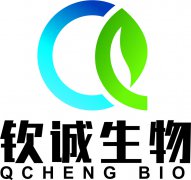细胞因子重组蛋白

Recombinant Human sRANK Ligand (CHO derived)
Recombinant Human sRANK Ligand (CHO derived)
产品详情
RANKL and RANK are members of the TNF superfamily of ligands and receptors that play an important role in the regulation of specific immunity and bone turnover. RANK (receptor) was originally identified as a dendritic cell-membrane protein, which, by interacting with RANKL, augments the ability of dendritic cells. These dendritic cells then stimulate naïve T-cell proliferation in a mixed lymphocyte reaction,promote the survival of RANK + T-cells, and regulate T-cell-dependent immune response. RANKL, which is expressed in a variety of cells,including osteoblasts, fibroblasts, activated T-cells and bone marrow stromal cells, is also capable of interacting with a decoy receptor called OPG. Binding of soluble OPG to sRANKL inhibits osteoclastogenesis by interrupting the signaling between stromal cells and osteoclastic progenitor cells, thereby leading to excess accumulation of bone and cartilage. Human RANKL is reactive on murine cells. PeproTech's CHO cell-derived Recombinant Human sRANK Ligand is a 22.1 kDa polypeptide comprised of the TNF-homologous region of RANKL and a N-terminal His-tag.
Source: CHO cells
Synonyms: soluble Receptor Activator of NF-κB Ligand, TNFSF11, TRANCE (TNF-Related Activation-induced Cytokine), OPGL, ODF (Osteoclast Differentiation Factor), CD254
AA Sequence: HHHHHHHHPS PGGSGGSQHI RAEKAMVDGS WLDLAKRSKL EAQPFAHLTI NATDIPSGSH KVSLSSWYHD RGWGKISNMT FSNGKLIVNQ DGFYYLYANI CFRHHETSGD LATEYLQLMV YVTKTSIKIP SSHTLMKGGS TKYWSGNSEF HFYSINVGGF FKLRSGEEIS IEVSNPSLLD PDQDATYFGA FKVRDID
Purity: ≥ 98% by SDS-PAGE gel and HPLC analyses.
Biological Activity: Determined by its ability to induce NF-κB in RAW264.7 cells in the absence of any cross-linking.

